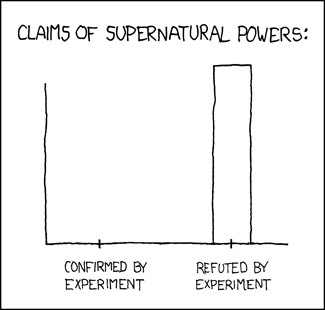The MacArthur Foundation is sponsoring a very exciting competition around digital media and learning, with a focus on participatory learning. This is a subject I've written about -- both for MacArthur and in other contexts -- and feel is a critical element to both formal and informal education as our world continues to increase in complexity and entanglement. With the deadline for both the Innovation and Young Innovator awards October 15th, I suspect that many readers of this blog are involved in projects that should be in the running. This is an amazing opportunity to bring cutting edge learning to a broader audience!
Tuesday, August 26, 2008
Sunday, March 09, 2008
forks in the road
Some travel, APOC, and the flu all conspired to interrupt my studying process, so as I carve out some time this week I find myself at a major fork in the road. On the one hand, I could return to my original plan of building a simple LAMP + AJAX web application, probably then rebuilding it with some different back end options. On the other hand, I'm itching to play with Flash and Action Script 3, and have a an application or two in mind that would be fun to build. Finally, on the third hand you humans are missing, the Apple iPhone SDK came out with a great development environment and simulator.
Decisions, decisions.
Sunday, February 10, 2008
knowledge acquisition
Recently I was asked how I went about learning new things. The question was in the context of my usual role of "go figure this out" at Linden, where I tended to draw the short straw and thus ended up researching -- among other topics -- intellectual property law, economics, learning theory, and philanthropy. I created a specific approach that served me well.
- Identify knowledgeable academics/experts in your field of interest. Games and virtual worlds make this is particularly easy, but a bit of time with Google and social networking and you can usual find a set.
- Reach out to them, preferably via mutual acquaintances, but otherwise with a direct, brief email. Explain what you are working on and why you are trying to better understand their field. Ask them for relevant books or articles that would help a motivated lay person understand their domain of expertise.
- Collect the list of reaching material from each source, then pick the 4 or 5 most popular and read them. More than that, study them, reading critically and for understanding. Take notes and generate questions from the readings.
- When you are done, write back to the people you asked for help. Thank them again, explain that you have read some of their recommended materials, and layout the questions and comments your studying generated.
Plus, you got to read about a new subject and come away with your mind stretched a bit. It is a win-win! You never will know enough to solve all the challenges you face starting businesses and creating new product, so having a network of smart people outside your domain can be an wonderful asset. It certainly was for Second Life development.
Wednesday, January 30, 2008
apoc week 3
This was an exciting week at USC for two reasons. I held my first faculty seminar and our class had two great guests. The faculty seminar was Annenberg Dean Ernest Wilson's idea. Since I was going to be down at Annenberg anyway, why not pull together a group of faculty and grad students to dig into where virtual worlds are, identity areas that need further research, explore how the lessons from Second Life could be applied to Annenberg, and generally bounce ideas between a pack of smart, opinionated people. I gave the first talk yesterday and I've posted my slides here on Slide Share.
It was a successful kick-off meeting and it clarified logical topics for the next several sessions, with full days needed on:
- Usage and behavior in virtual worlds/mmos
- Legal and regulatory issues for virtual worlds
- Education
- National security and public diplomacy
- Connections between virtual worlds, games, and social networks
For the class, we were joined by Sue Cross and Sarah Nordgren from the Associated Press. Sue is their VP Online and is responsible for all the online services for the AP, including the many news sites that publish AP stories. It was a lively and candid discussion that focused on the impact of citizen journalism, the general painful trends impacted the newspaper business, and in particular how those trends have impacted the AP. I think the AP is in a very interesting position. While newspapers have been diving for the hyperlocal markets in an attempt to be more relevant than broader online sources -- more on that in a moment -- AP attempts to provide a worldwide news bureau that is able to source stories for any paper in the world. Imagine trying to write stories about Iraq that both the Washington Post and Washington Times would publish? And they do this with a relatively small staff. They've also seen an increasing demand for their international coverage as even major papers have continued to cut their newsrooms.
The hyperlocal focus of papers is going to be tough as the web really gears up in this area. Yelp is already well established with Yellowpages.com leveraging its brand as well. In addition, one of the students pointed out Everyblock, which is neat. How cool was it to see the health inspection report of my favorite restaurant in San Francisco? However, while attempting to find the listing again, now I can't find it. So negative points for missing obvious search options.
The students also spent time examining three small sites/communities, Kingdom of Loathing, xkcd, and magnatune. All three demonstrate that you don't need to start big to create a thriving and interesting place on the web, although there were nits. This week, students will be looking into virtual worlds and games. Any bets on which worlds and games get the most time? Which ones install correctly for the most students? Generate the most comments in their reflection papers?
Wednesday, January 23, 2008
stumped by blogger
Well, I was going to post a bit of JavaScript but I have been defeated by Blogger. Since it seemed tricky, I was playing around with rendering in js and wrote a nifty little Mandelbrot rendered. Both it and the drawing code are in relatively clean objects, so I was going to dump it into Blogger's "HTML/Javascript" page element.
Alas, some part of the upload process mangles some js. There are a few mentions I discovered via Google, but not enough info to quickly determine a workaround, nor is it important enough to dive into the Blogger support queue. I'm working on a project that I'll need to host, so I'll just wait until then. If anyone knows the right incantation to get Blogger to behave, let me know.
Monday, January 21, 2008
Thursday, January 17, 2008
"JavaScript".replace(/Java/, "c");
So, here's the thing. If you go into working with JavaScript thinking "wow, it will be like Java, only scripty" you are in for a world of disappointment. I think this is the reason people's immediate reaction to the comment "I'm learning JavaScript" is to shake their head sadly and respond with "I'm sorry. Broken language."
This is a mistake. First off, I know broken languages. Hell, I've invented one. JavaScript, has its problems, but the largest one is due to the rocket scientists who decided to name it, well, JavaScript. It was, of course, originally known as LiveScript, but for marketing reasons the name was changed.
And hilarity ensued.
Instead, try this mental shift: think of the language as cScript. You know, c, only scripty. I know, you're thinking this is crazy, but work with me for a moment.
The syntax is very c-like, down to the ?: ternary operator, braces, and naming conventions. Now, unlike c, it isn't typed, but that's what makes it scripty. Plus, everything we do to work around c's typed nature -- void *, memcpy, function pointers, etc - just causes memory leaks, architecture dependence, and pain, so isn't it nice to have a language that does that for you? Even the method of extending JavaScript objects -- by creating functions and adding parameters in -- looks a lot like what happens when you apply OOP principles to c.
Now, it is dog slow -- hello, why the hell isn't it JIT-ed? -- and shows quirks from having evolved amidst the browser wars. But with the canvas tag and other sexiness looming on the horizon -- not to mention the uber-fast ActionScript engine in Flash -- I'm having a blast. This weekend I get to start working on my first test app, which will be fun.
For JavaScript, I worked through O'Reilly's "Learning JavaScript." The reviews are correct -- there are a lot of typos -- but thanks to Firebug I turned most of those into learning experiences. I also am most of the way through "Learning PHP and MySQL." Same problem -- lots of typos -- but I thought it did a pretty good job of filling in gaps. However, in comparing how it used PHP to the "Head Rush Ajax," I thought the Head Rush book's approach of writing simple HTML, using AJAX to fill in the dynamic data, and applying PHP as the server language to generate JSON and XML data fits my brain better than the Learning PHP book, which is all about using PHP to generate HTML directly. That way seemed really awkward, required Smarty templates, and just looked like a lot of work.
Current plan of record, for those following at home, is to do first pass of test app in PHP, then recreate it in Rails. I figure the compare and contrast should be enjoyable.
Friday, January 11, 2008
2 down, n - 2 to go
Just finished "Head Rush Ajax." It didn't feel as polished as the HTML book. The final example in the Ajax book doesn't work, but the helpful forums did have the answer. As I mentioned, some of the coding examples are really painful, although I don't yet know if that is because the authors don't want to teach JavaScript or because JavaScript is teh suck. "Learning JavaScript" is next, so I'll let you know then. Question for readers out there: should I do LAMP next -- that is to say, run through "Learning MySQL and PHP" -- or jump straight to Rails? My instinct is to blast through the LAMP book -- despite the reviews that indicate a lot of errata -- since I'd like to understand the server side concepts before hitting all the Rails shortcuts.
Thursday, January 10, 2008
beating blogger into submission
Blogger really isn't setup to give you a multipage blog, nor does it make sharing widgets easy. However, collapsing geography is now broken up a bit more. Once I get through the next two O'Reilly books, will definitely have to muck around more.
Almost done with the "Head Rush Ajax" book. It's a good thing that I didn't review it early in the process, because the annoyance around getting the examples to run was higher than expected since they require PHP. Fortunately, MAMP solved that problem and I've been having a blast with the book. Some of the javascript examples are really painful because the authors are trying hard not to teach js, so if you're a programmer, you'll immediately want to improve the script as you go. Other than those two quirks, I've been enjoying my homework quite a bit.



